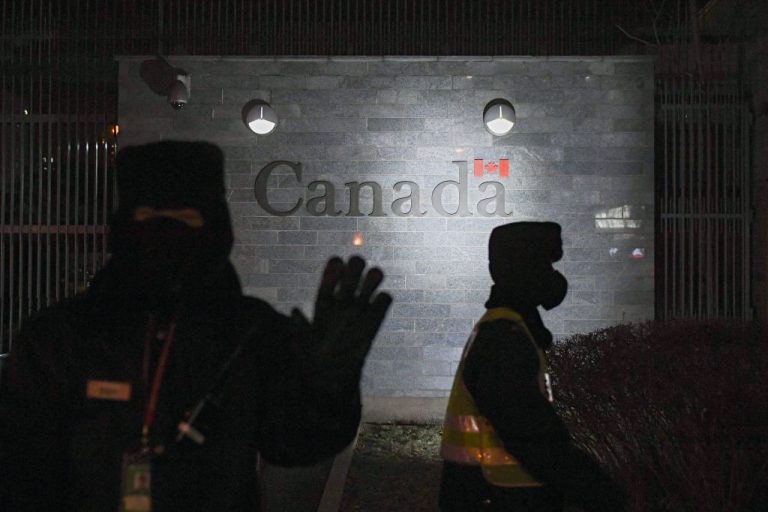The Canadian Security Intelligence Service (CSIS) warned Prime Minister Justin Trudeau and his Liberal Party cabinet ministers in January of 2022 about an ongoing campaign of external interference in federal elections from the Chinese Communist Party since at least 2019, new investigative journalism has uncovered.
Citing sources kept anonymous within CSIS, well known investigative journalist and author Sam Cooper stated in a Nov. 7 article in establishment media outlet Global News that the country’s spy agency had delivered “a series of briefings and memos” to the country’s leadership.
MORE ON CHINESE COMMUNIST PARTY CORRUPTION IN NORTH AMERICA
- Chinese National Claiming $40,000 Annual Income Buys $32 Million in Vancouver Real Estate
- BMW, Mercedes Export Scheme to China Plagues Canadian Dealers
- Mexican Drug Cartels Laundering Money Through China’s Triads After Championing US Fentanyl Push
The sources were paraphrased as outlining “Beijing’s efforts to further its influence and, in turn, subvert Canada’s democratic process.”
The allegations are shocking as Cooper describes, “A clandestine network of at least 11 federal candidates running in the 2019 election” who are alleged to have taken funding from the communist regime.
Potentially criminal acts as significant as:
- “Payments through intermediaries to candidates affiliated with the Chinese Communist Party (CCP)”;
- “Placing agents into the offices of MPs in order to influence policy, seeking to co-opt and corrupt former Canadian officials to gain leverage in Ottawa”; and
- “Mounting aggressive campaigns to punish Canadian politicians whom the People’s Republic of China (PRC) views as threats to its interests.”
Success
You are now signed up for our newsletter
Success
Check your email to complete sign up
Are alleged to have occurred, Cooper wrote.
Cooper is a career investigative journalist who has spent years documenting the CCP’s influence operations during his time with Postmedia node Vancouver Sun, a mission he continued after joining Global News in 2018.
CSIS on an agency level declined to provide comment to Global on the topic, but “confirmed it has identified the PRC’s foreign interference in Canada.”
Additionally, the outlet disclaimed that it was unable “to confirm from the sources which cabinet ministers may have been privy to the briefs nor the specific timing that the information was reportedly shared.”
Alleged details of election interference seem to revolve around the Toronto Chinese Consulate, one of Canada’s five official PRC hubs — the others being consulates in Calgary, Vancouver, and Montreal, and the Embassy in Ottawa.
Cooper wrote, “Chief among the allegations is that CSIS reported that China’s Toronto consulate directed a large clandestine transfer of funds to a network of at least eleven federal election candidates and numerous Beijing operatives who worked as their campaign staffers.”
More significant is the nature of the claims.
The article states that the lynchpin in the schema was no less than an unidentified Ontario Member of Provincial Parliament and an election campaign staffer, alleged to have trafficked $250,000 on behalf of the Communist Party’s influencers.
Importantly, briefings Cooper and the Global News team viewed “said that some, but not all, members of the alleged network are witting affiliates of the Chinese Communist Party.”
At the center of the conflict is the CCP’s United Front Work Department, a well known parasite-like network of state influence operations, targets of which “can include politicians, media, business, student and community groups, and are aimed at consolidating support for CCP policy as well as targeting critics and the causes of ethnic groups seen as ‘poisons’ by the CCP, such as Uyghurs and Tibetans,” Cooper noted.
Cooper is also the author of the book Wilful Blindness: How a Network of Narcos, Tycoons and Chinese Communist Party Agents Infiltrated the West, which describes in detail how the UFWD not only launders drug money obtained in the notorious Vancouver heroin and fentanyl epidemic through British Columbia’s provincial casinos, but is allegedly linked to several high ranking elected officials.
The article also denoted that “The intelligence did not conclude whether CSIS believes the network successfully influenced the October 2019 election results, sources say.”
Of particular note is a tidbit nestled later in the article where Cooper discloses that CSIS actually has the ability to execute warrants that allow the agency to utilize “electronic interception of communications among Chinese consulate officials and Canadian politicians and staffers.”
The motive for the sources stepping forward was paraphrased in the article as “to give Canadians a clearer understanding of China’s attacks on Canada’s democratic system.”
Trudeau’s office declined to comment materially on any of the allegations when Global News requested, instead answering with a boilerplate statement, which claimed, “Protecting Canadians’ security is our top priority.”
The official opposition Conservative Party also did not deem the matter appropriate for comment.


















